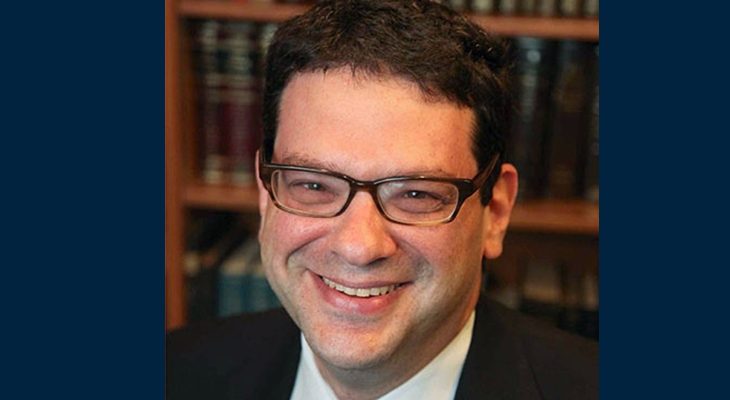Ps. 42-43: Longing for God & Community
July 21, 2020

Rabbi Shai Held is President, Dean, and Chair in Jewish Thought at Hadar. He holds a doctorate in religion from Harvard University. Rabbi Held’s first book, Abraham Joshua Heschel: The Call of Transcendence, was published by Indiana University Press in 2013; The Heart of Torah, a collection of essays on the Torah in two volumes, was published by JPS in 2017.
Among the countless ways that Covid-19 has upended our lives, one of the most enduringly painful is the way it has forced us apart. Many of us are grieving our inability to spend time in person with family, friends, and community; many are wondering, too, where God could possibly be at a time like this. We may feel lost, bereft, and bewildered, remembering better, richer, more joyous times.
There is a psalm of lament (complaint) that gives voice to what many of us are feeling.*
In biblical times, (at least some) people would journey to the Temple in Jerusalem on the three pilgrimage festivals: Pesach (Passover), Shavuot (Feast of Weeks), and Sukkot (Feast of Booths). The hope was to connect deeply, both to God and to the community.
But the author of Psalm 42-43 (the two psalms are really one) is stuck, seemingly stranded far away from the Temple (Psalm 42:7)—and is miserable as a result. He wants to go to the Temple to be “seen by God”; he thirsts for God, he says, “like a hind cries for water” (42:2-3). Water is not a luxury but a bare necessity; similarly, for the psalmist, closeness to God is an elemental need. Religion for him is not a hobby or a weekend diversion but a fundamental source of nourishment.
And yet God is far away. Graphically, the psalmist complains that he has no choice but to eat his own tears day and night (42:4). Note the power of the image: he is “thirsty” for God but all he can consume are his own tears, which, presumably, only intensify his thirst.
Memories of past holidays only make the situation worse. Like a lover staring at old photographs of a love now lost, the psalmist looks back on past pilgrimages—but the recollections only exacerbate the sufferings of the present. Joyous memories deepen present despair.
It’s not just God who is absent. As the psalmist recalls past pilgrimages, he remembers how he “walked with the crowd, moved with them,” delighted to be part of the “festive throng” journeying to Jerusalem (42:5). For the psalmist, missing God and missing God’s people are deeply entwined—just as for many of us, a sense of religious desolation and social isolation go hand in hand.
The psalm is remarkable in its raw candor. The psalmist tries to comfort himself, to reassure himself that his present predicament is not permanent. “Why so downcast, my being; why so disquieted within me?,” he says; “have hope in God—I will yet praise God for God’s saving presence” (42:6). But then, right after consoling himself, the psalmist goes right back to lamenting: “O my God, my whole being is downcast” (42:7). The psalm refuses to tie human experience in a neat ribbon, as if at first we’re in doubt but then everything is fixed. Instead, the psalm evokes the reality that the conversation between hope and despair is never fully and finally resolved. If you’ve ever had the experience of bucking yourself up, lifting your sagging spirit one moment, and then sinking back into anguish and heartache the next, then you know something of the psalmist’s experience. This is part of the power of the Psalms: they don’t lie about suffering and they don’t try to make ugly times look pretty. Rather, they believe we can bring the reality of both our joys and our disappointments before God.
At one point, the psalmist declares that all of God’s “breakers and billows have swept over” him (42:8); he is positively pummeled by his woes. The same is true for many of us. We have been devastated by the deaths of people we know and admire, by the illness of people we love, and by the terrifying vulnerability of friends serving on the front lines. We worry, too, about our own health, and about who will take care of our children if we fall victim to the plague that envelops us.
Time and again, the psalmist reminds himself that just as the past looked different from the present, so too will the future. He returns repeatedly to hope but—crucially—without denying the reality of despair. In the experience of the psalmist, as in many of our own, hope and despair must co-exist.
The difficult times we face are far from over. If we are ever to get this plague under control, we will need to be distanced from people we love; many of us will also be forced to endure an agonizing sense of God’s absence. Each experience would be painful in its own right; both coupled together may be exponentially more so. Perhaps we can take some comfort in knowing that we are not the first to feel this way. Perhaps, like the psalmist, we can find moments of calm, confident that one day we will again know God and hold one another close.
*I wish to thank Clinton McCann and William Brown for helping me understand this psalm in its depths.
Read more about the PsalmSeason here & subscribe for email updates.
Share
Related Articles
Interfaith Inspiration
American Civic Life
Interfaith Inspiration



